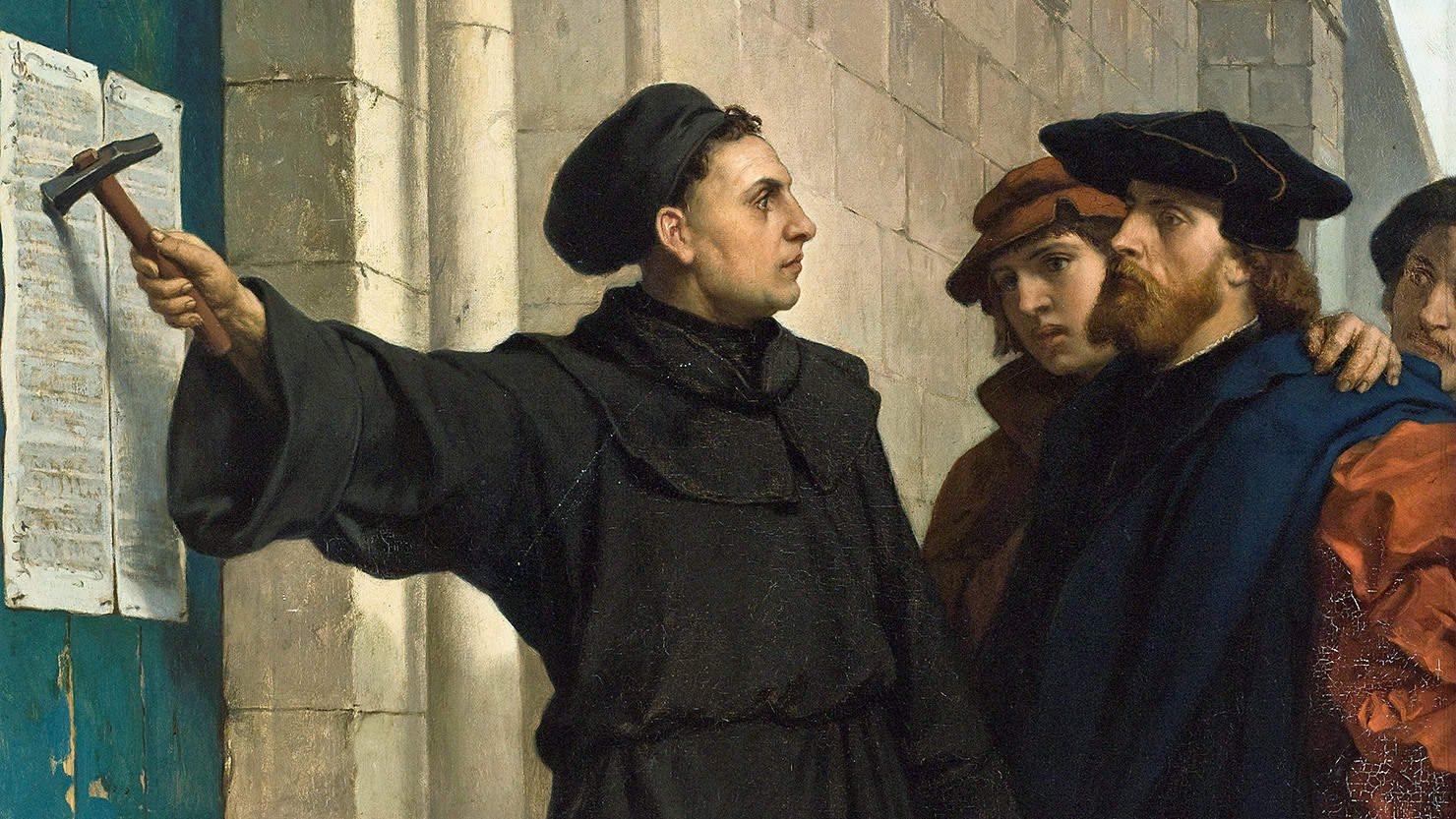On October 31, 1517, a monk and professor named Martin Luther sent a document entitled Disputatio Pro Declaratione Virtutis Indulgentiarum to the archbishop of Mainz. This Disputatio consisted of ninety-five theses for theological debate. Perhaps on October 31 or more probably a week or two later, Luther hammered the theses to the door of All Saints’ Church in Wittenberg. Although the Protestant Reformation was a complex social movement with many causes, this event is frequently identified as the beginning of the Reformation.
When Martin Luther wrote the theses, a monk named John Tetzel was selling indulgences—certificates that, in exchange for a sum of money, released an individual from the temporal punishments for their sins—near the village of Wittenberg. Some members of Martin Luther’s church claimed that, since they had purchased an indulgence, they no longer needed to repent or to confess their sins. In response, Luther wrote ninety-five theses for debate.
Here are a few of the theses that Luther posted on the door in Wittenberg:
1. When our Lord and Master Jesus Christ said, “Repent,” he willed the entire life of believers to be one of repentance. …
3. Inner repentance is worthless unless it produces various outward mortification of the flesh. …
21. Indulgence preachers are in error who say that a man is absolved from every penalty and saved by papal indulgences.. …
62. The true treasure of the church is the most holy gospel of the glory and grace of God.
Each year on October 31, Protestants around the world celebrate this event as one of the crucial moments in church history when God’s people began to discover anew the gospel of God’s grace. To learn more about the life of Martin Luther, take a look at this video:
Martin Luther and the Dawn of the Protestant Reformation
Discuss in the Comments:
Watch the video above because it includes lots of helpful information; then, watch the video below because it’s amazing.
What did you know about the Reformation before watching these videos? What did you find out that you didn’t know before? What do you still find yourself wondering about the Reformation?
Adapted from a post originally published on October 31, 2016


